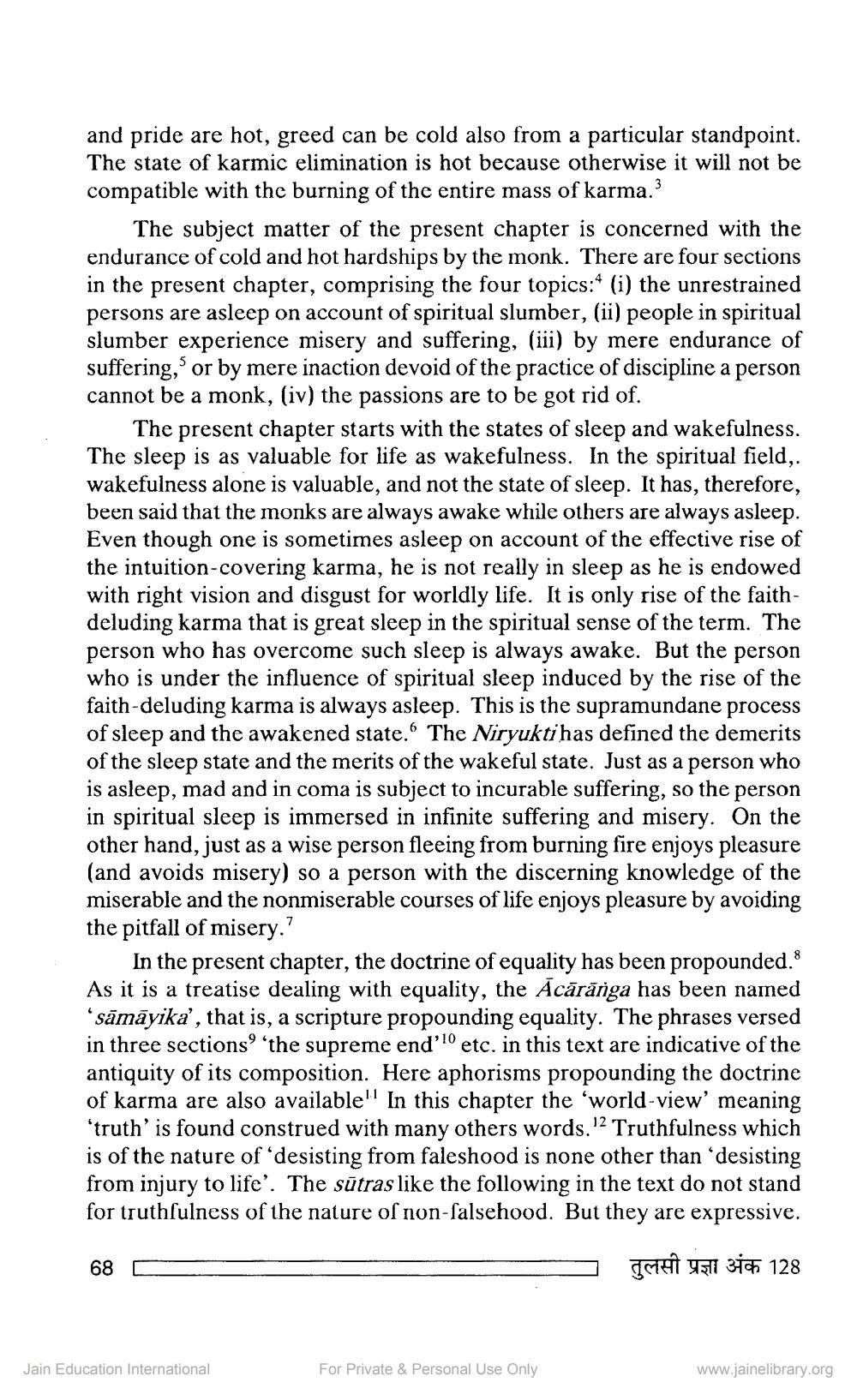________________
and pride are hot, greed can be cold also from a particular standpoint. The state of karmic elimination is hot because otherwise it will not be compatible with the burning of the entire mass of karma.3
The subject matter of the present chapter is concerned with the endurance of cold and hot hardships by the monk. There are four sections in the present chapter, comprising the four topics: (i) the unrestrained persons are asleep on account of spiritual slumber, (ii) people in spiritual slumber experience misery and suffering, (iii) by mere endurance of suffering, or by mere inaction devoid of the practice of discipline a person cannot be a monk, (iv) the passions are to be got rid of.
5
The present chapter starts with the states of sleep and wakefulness. The sleep is as valuable for life as wakefulness. In the spiritual field,. wakefulness alone is valuable, and not the state of sleep. It has, therefore, been said that the monks are always awake while others are always asleep. Even though one is sometimes asleep on account of the effective rise of the intuition-covering karma, he is not really in sleep as he is endowed with right vision and disgust for worldly life. It is only rise of the faithdeluding karma that is great sleep in the spiritual sense of the term. The person who has overcome such sleep is always awake. But the person who is under the influence of spiritual sleep induced by the rise of the faith-deluding karma is always asleep. This is the supramundane process of sleep and the awakened state." The Niryukti has defined the demerits of the sleep state and the merits of the wakeful state. Just as a person who is asleep, mad and in coma is subject to incurable suffering, so the person in spiritual sleep is immersed in infinite suffering and misery. On the other hand, just as a wise person fleeing from burning fire enjoys pleasure (and avoids misery) so a person with the discerning knowledge of the miserable and the nonmiserable courses of life enjoys pleasure by avoiding the pitfall of misery.7
In the present chapter, the doctrine of equality has been propounded.R As it is a treatise dealing with equality, the Acaränga has been named 'sāmāyika', that is, a scripture propounding equality. The phrases versed in three sections" 'the supreme end'10 etc. in this text are indicative of the antiquity of its composition. Here aphorisms propounding the doctrine of karma are also available" In this chapter the 'world-view' meaning 'truth' is found construed with many others words. 12 Truthfulness which is of the nature of 'desisting from faleshood is none other than 'desisting from injury to life'. The sūtras like the following in the text do not stand for truthfulness of the nature of non-falsehood. But they are expressive.
तुलसी प्रज्ञा अंक 128
68
Jain Education International
For Private & Personal Use Only
www.jainelibrary.org




